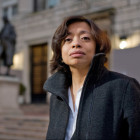
Image: Shutterstock
Investigative reporters in almost all authoritarian countries face a crisis of impact: In addition to enduring all kinds of harassment, they find that governments simply ignore the damning revelations in their stories.
For instance, in May investigative editors in Serbia told GIJN that their outlets had been marginalized by officials to the point where “we’re writing stories for the future when there might be real impact,” as one journalist put it.
But last week at RightsCon — dubbed “the world’s leading summit on human rights in the digital age” — a panel of editors suggested a range of coping strategies for journalists operating under similar repressive regimes. Among them was this simple yet radical strategy to push back: reject the unaccountable reality and operate as if your countries are, in fact, democratic.
“Behave as if it is a democracy,” advised Nic Dawes, who has edited news outlets in India, the US, and his native South Africa. “[We need] to make this great ‘as-if:’ If this was a democracy, we would report this stuff and the minister would get fired, someone would be put in jail, or someone’s bank accounts would be seized. One of the ways you keep the democratic imagination alive is to act that way, as a journalist. It takes tremendous courage… but it’s really of underestimated importance.”

Nic Dawes
Which stories count as “successful” in countries where the bad actors exposed are rarely held to account? Essentially all of them, according to Dawes.
“We talk about ‘impact,’ where we’re happy if the story produces results,” he said. “But there’s a much more subtle but powerful impact in simply doing the work.”
Dawes said reporters at independent outlets like Egypt’s Mada Masr already operate this way — raising the bar for accountability in the minds of their readers in the process.
His fellow panelist Lina Attalah — chief editor of Mada Masr — says this approach also helps journalists avoid self-censorship in the deeply autocratic state, and avoid overlooking potential stories in the belief that nothing will happen in their wake.
In a RightsCon session hosted by GIJN — titled “The Challenges of Authoritarianism: Keeping Investigative Journalism Alive” — this strategy was one of several tips shared by Dawes, Attalah, and Vinod K. Jose, executive editor of India’s watchdog magazine The Caravan. The session was attended by 570 journalists and human rights practitioners from around the world.
A central takeaway from the discussion was that small, independent newsrooms are using a form of journalistic judo to confront giant autocratic regimes: finding new opportunities in the very tactics used to repress them.
For example, Attalah said state authorities successfully used various strategies to prevent Mada Masr from growing into a large media outlet. But she and her team then brainstormed what journalistic advantage they could find from having a smaller core audience — and found that it allowed them to deepen their relationship with the smaller community. This relationship generated loyal sources and email addresses for individual readers. And when Egyptian authorities temporarily shut its website down, Mada Masr was able to continue sharing its stories via those email lists.
“The benefits of building deeper relations extended to when our website got blocked,” Attalah explained. “We had to rely on alternative forms of dissemination, including sending our content in the form of email capsules — forms like bulletins and digests.”

Lina Attalah
Attalah said collecting email lists represents an important emergency distribution strategy for small newsrooms in authoritarian nations.
Above all, she said the stubborn pursuit of accountability stories — irrespective of their outcome — is “an act of holding space” in an era of rights erosion.
“I really like the [idea] of acting as if it’s a democracy, because, psychologically, it makes us confront our fears: it makes us challenge what would be our tendencies for self-censorship for self-preservation,” she said. “If we operate under the pretense that the sky’s the limit, we can do what we want to do.”
Attalah says that using this pretense, reporters at Mada Masr were more successful in collecting data during the reporting phase of their investigations, but then had to again “hide under the table” when those stories were published. And even when authorities don’t address the corruption revealed, these stories often do at least embarrass or “give a headache” to the officials involved, she notes, which create their own pressures.
India’s Jose said another important strategy for under-fire newsrooms is to publish investigations in multiple languages — not only to engage regional and marginalized audiences but also to stay a step ahead of censors. For instance, The Caravan now has a dedicated Hindi website.
“When we break a story, our regional language guys — far removed from Delhi — take those stories and follow-up, and that works,” he said.
Jose says continuous coverage of the same issue can generate public opinion momentum that affects unjust government policy. For instance, he says The Caravan’s stubborn opposition to the domestic sale of COVID-19 vaccinations — which are generally distributed free around the world — led to a shift in vaccination policy.
“The biggest challenge in India is to the rule of law, and freedom of the press,” said Jose. “Many in power really think these need to be dismantled.”
Jose warned that a 95-year-old neo-fascist ideology has taken root in India’s ruling elite and that both minority rights and press freedom are now directly threatened by Hindu nationalism.

Vinod K. Jose
“There is a vision for India which is majoritarian Hindu nationalism, and that doesn’t accommodate all the values enshrined in the constitution — respecting plurality; respecting dissent,” he explained. “All human rights defenders are being targeted. Many of us, including ourselves, have been booked on sedition cases.”
Moderating the panel was Sheila Coronel, who has seen the rise of two autocratic rulers in her native Philippines, Ferdinand Marcos and now Rodrigo Duterte. Coronel, now director of the Stabile Center for Investigative Journalism at Columbia University, painted a stark picture of the broader global landscape. “Press freedom is at its lowest ebb,” she told the audience, “maybe since the 1990s.”
When Coronel asked what newsrooms can do to counter false, growing autocratic narratives about journalists — in which they are branded “the enemy,” “fake news,” or “press-titutes” – Dawes said reporters should tell their own story the same way they tell all stories: both stating and demonstrating the facts.
“We have to both tell and show our alignment with core principles of democracy and human rights — and do it in our work,” he said.
Attalah said Mada Masr shows its true role — and counters smears like “Western agents” or even “terrorists” — by relentlessly contextualizing the facts the team unearths.
“A lot of people aligned with those in power thought of us as the enemy but, increasingly, we are attracting attention from people who consider themselves politically in disagreement with us, but they feel this is a site which has sound information and does professional journalism,” she said.
Given the high stakes for human rights in authoritarian societies, Dawes said newsrooms need to focus on serving the rights needs of their oppressed audiences.
“Adherence to our own professional standards and identities has sometimes taken precedence over our allegiance to fundamental freedoms and human rights, and to better outcomes for the people whom we serve,” he noted.
In another tip, Dawes said holding open editorial meetings with marginalized communities can help build trust in any society.
Dawes suggested that journalists — who are used to a narrow focus on stories and beats — need to step back and view the civic landscape in a way that civil society groups do. “Civil society has in many ways been more alert than journalists to the convergence of threats that are leading to the closing of civic space,” he said.
Those threats include invasive surveillance technologies, the populist demonization of the press, and assaults on all watchdog institutions – and these patterns are emerging in every kind of society, no matter its democratic status, Dawes observed.
“We need to understand the commonalities that cut across between deeply repressive societies like Egypt, places with a rapid escalation of repression like India, and places like the United States or Brazil,” he said. “Leaders are intent on stigmatizing institutions of accountability — particularly the press. We see it in the Philippines, using digital tools to amplify those messages across networks of hyper-partisan trolls; we see the spread and availability of powerful surveillance tools everywhere from Israel to India and the US, whether it’s malware distributed through WhatsApp groups or state capabilities.”
Despite all the challenges, the editors voiced optimism that better days are ahead and that they will continue to find ways to adapt, often using a regime’s own clumsy tactics against it. When authoritarian-minded governments try to ignore newsrooms like Mada Masr and The Caravan, reporters there respond by ignoring those states’ lowered bar of accountability — and instead hold them to constitutional and international standards not yet lost from the minds of their audiences.

Sheila Coronel
Calling them “keepers of the watchdog tradition, fending off challenges from autocratic rule,” Coronel asked the panelists what keeps them optimistic for the future.
“Getting to work every day with people like Lina and Vinod, and colleagues in South Africa, Brazil, the Philippines, who are keeping this work alive,” replied Dawes. “And getting to participate in the challenges here in the US — the effort to rebuild local reporting and communities around reporting. Both at the global and local scale, that rich mesh of capability is just thrilling and inspiring.”
Attalah said even small successes in restoring critical thinking held the promise of a more accountable future.
“We live at such a time of institutional deficit in terms of civil society,” she said. “So this journey of creating and putting together this institution [of Mada Masr] alongside colleagues who share progressive values is something that gives me immense hope, that, in the darkest times, the promise of thinking critically, of organizing, of facing the realities we don’t like, is all possible.”
Jose said he had already noticed a resurgence in editorial courage even from India’s legacy media, following government mishandling of the COVID-19 pandemic. “There is a lot of merit in working with younger people, and graduates from schools — we need to pass the torch on, and we should be optimistic,” he said.
Perhaps speaking for many journalists – and to the practical limits of repression — Jose summed up the future in this way: “I think we keep the fire burning for democracy by just being ourselves.”
To learn more about RightsCon2021, and to watch sessions from this year’s conference, check out their AccessNow YouTube channel.
Additional Resources
When Autocrats Attack: How Journalists Around the Globe Are Fighting Back
Understanding the Authoritarian’s Playbook: Tips for Journalists
GIJN Webinar: Investigating Autocracy
 Rowan Philp is a reporter for GIJN. Rowan was formerly chief reporter for South Africa’s Sunday Times. As a foreign correspondent, he has reported on news, politics, corruption, and conflict from more than two dozen countries around the world.
Rowan Philp is a reporter for GIJN. Rowan was formerly chief reporter for South Africa’s Sunday Times. As a foreign correspondent, he has reported on news, politics, corruption, and conflict from more than two dozen countries around the world.
